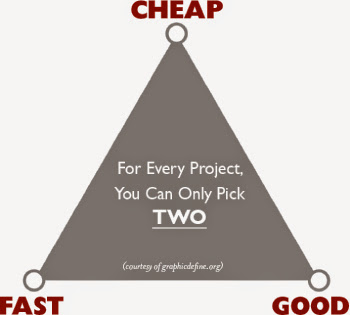I think I get your question now.
So your 1 month doesn't include pre production and post production? What you need to do is find out how long pre production and post production will take for your specific production (it's a how long is a piece of string question).
To answer this, you're going to have to do one of 3 things:
- You're going to need to gain the experience to schedule and manage these productions.
- You're going to hire someone to do this task for you and give you an answer.
- You're going to have a guess and hope like hell that you're right.
Here's the problem if the number is wrong:
If you schedule post production to be completed in 3 weeks (which is nuts, depending on your production) and you get half way through your time but you're maybe 25% through your work, what do you do? Extend the time (ensuring you get a good result) costing you more money, throwing more resources at it (making it faster and way more costly and rarely works out well) or make it faster to keep within budget and schedule and substantially lower your quality.
There's a saying. Every dollar you spend in pre production, you save 2 in production. Of course after a while you're hit with diminishing returns, but you need pre production to take the right amount of time. No more, no less. That time is determined by the production. Just like how many actors you require and how long you need them also depends on the production.
That all being said.
You're shooting 4 movies. If you've got a cast that is in all of them. Is there a reason you haven't considered going into pre-production for all 4 movies at once and consider them one project (like they did with Back to the Future 2 + 3, Lord of the Rings, The Hobbit, Avatar 2,3 etc). Shoot each of them concurrently over 4 months (which I seriously doubt you'll get to shoot for that long with your budgets) and then move into post production. It's likely that you'll find ways to stretch those dollars better (doubling up on locations, better equipment hire deals, no need to purchase wardrobe/props again, reducing storage etc), which basically means, better production value.
There is a significant down side. There is increased risk. If you make each movie individually and wait to see the outcome, you may come to the conclusion that you're better off ditching the other movies. If you pick the wrong team, hell, even if you pick the right team, you may not know you're holding a steaming pile of manure until it's too late.
You really need someone like rik on your team. I can see your lack of experience causing you to burn through a lot of cash unnecessarily. It's a shame, for your sake, you had a falling out with him. I suspect this level of budgeted projects are in his comfort zone.





